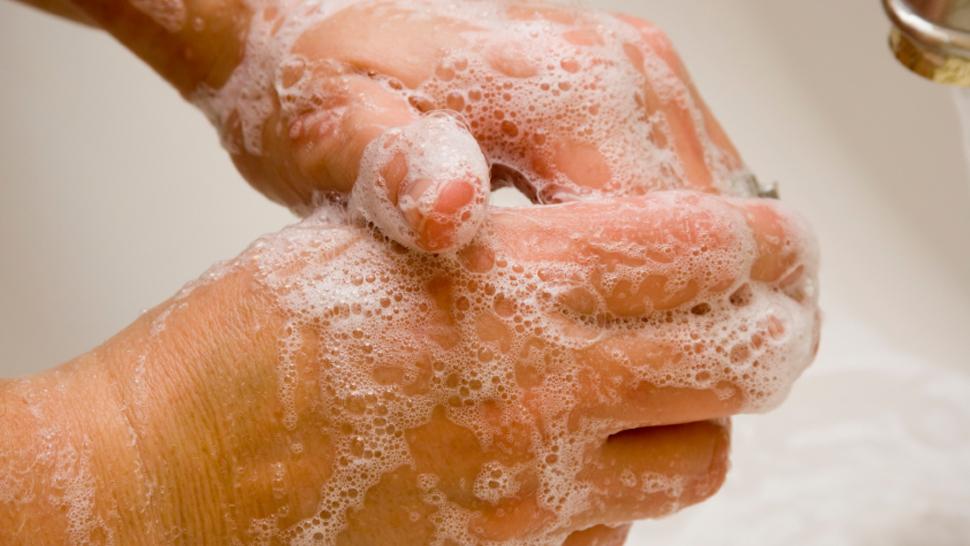Chances are that you already have enough reasons to make you nervous and lose concentration, without having to worry about someone sitting next to you who is continuously sneezing, coughing or sniffling.
What is a cold?
Most people confuse the cold with having the flu virus (influenza), the latter of which usually manifests itself with more aggressive body aches, a stuffed nose, headaches, chills and perhaps fever. 100 % of cold and flu-like illnesses are caused by viruses, and not bacteria.
The biggest difference between viruses and bacteria is that virus need a living host (like an animal or human) to multiply and spread, whereas bacteria can grow on non-living surfaces. Bacterial infections are caused by bacteria, and viral infections are caused by viruses. The most important distinction between bacteria and viruses is that antibiotic drugs usually kill bacteria, but they aren't effective against viruses.
So, once you've caught a cold, effective antiviral action is required to reduce the symptoms and treat the problem. Needless to say, the healthier your body and the stronger your immune system, the better off you are. Hence regular exercise and a healthy diet are critical to stave off disease and infections. It is essential to stock up on vitamin C for a strong immune system (be it orange juice or fresh oranges), lots of sleep and healthy foods like soup.
Here are a few things you can do to take care of yourself if you start feeling a little under the weather around exam time:
1. Wash hands regularly with soap and for at least one minute each time to prevent the spread of germs, especially when in public areas. Washing hands correctly prevents illnesses and the spreading of infections to others. One of the most common way of germs spreading is via coughing or sneezing, both actions which usually result in people wiping their face with their hands.

2. It is essential to stock up on Vitamin C as it helps improve your body's immune system, so make sure you get enough orange juice or fresh oranges. Ideally taking vitamin C before the onset of any cold symptoms usually shortens the cold cycle, and is proven to be especially effective for those at school where frequent exposure to colds and flu is quite common.
3. Make sure you get those eight hours of sleep – a tired body can't be a healthy body. In 2015, the journal Sleep published a study claiming that with less than seven hours of sleep, the chances of someone getting a cold quadruples, so adequate sleep is critical.

4. Rather than starting a cure at the onset of a cold, prevention is always better. As a general rule for better health, try sticking to healthier foods like lots of fresh fruits and vegetables and warm soups to fuel your body rather than large, greasy meals. The right nutrients can help your body fight off an illness. Certain cold symptoms like excessive mucous are the body's inflammatory response to the pathogen, so as well as eating proven cold-busters, foods that dial down inflammation can make you feel better.

5. Likewise, make sure to drink lots of fluids throughout the day, because your body needs extra hydration when you're trying to get well. But at the same time, it's important to take care to avoid too much coffee or stimulant drinks that are loaded with sugar. Decaf tea, soups and water with lemon will work wonders and are easy to get your hands on too.
(source: https://symptoms.webmd.com/cold-flu-map/how-to-stay-hydrated-when-youre-sick)

6. However if you do still manage to catch a cold despite taking all the adequate precautions described above, effective treatment and getting the right medication at the first sign of a cold is important, as it is not just about relieving symptoms.
One effective and essential medication to fight off the cold virus is BETADINE™ Cold Defence Nasal Spray. Regarded as a safe brand with the antiviral effects, BETADINE™ Cold Defence Nasal Spray helps stop colds early by trapping and eliminating up to 99% of the common cold and flu viruses, and has been clinically proven to shorten the duration of a cold by up to 2 days.
If you do have a cold, be responsible and cautious to not spread it to others around you. Unfortunately, this isn't always the case. Sometimes people who have a cold don't respect the personal space of others around them, so the best thing you can do for yourself for peace of mind during stressful periods like exam times, is taking adequate precautions against catching a cold yourself.

